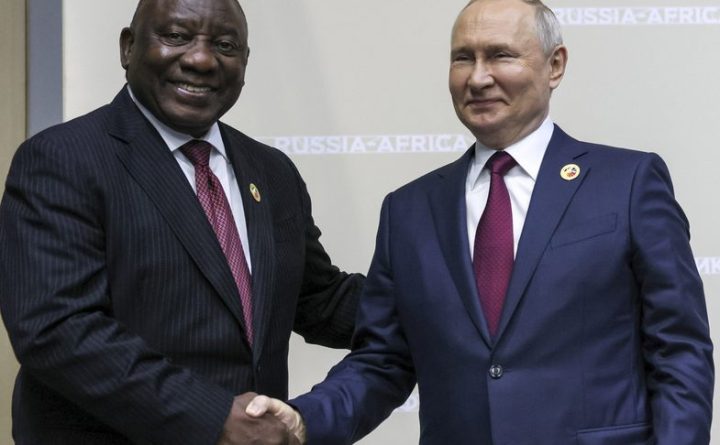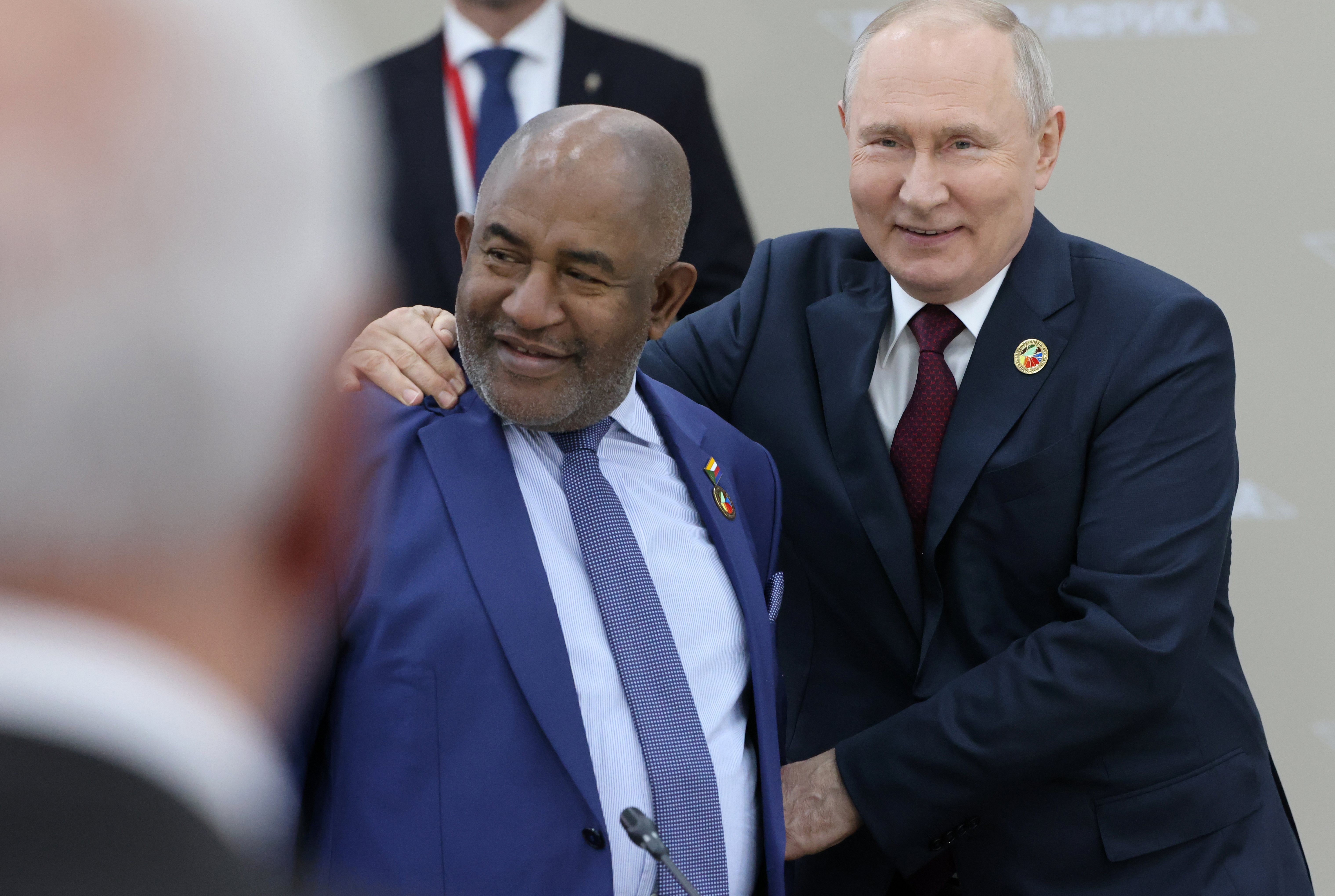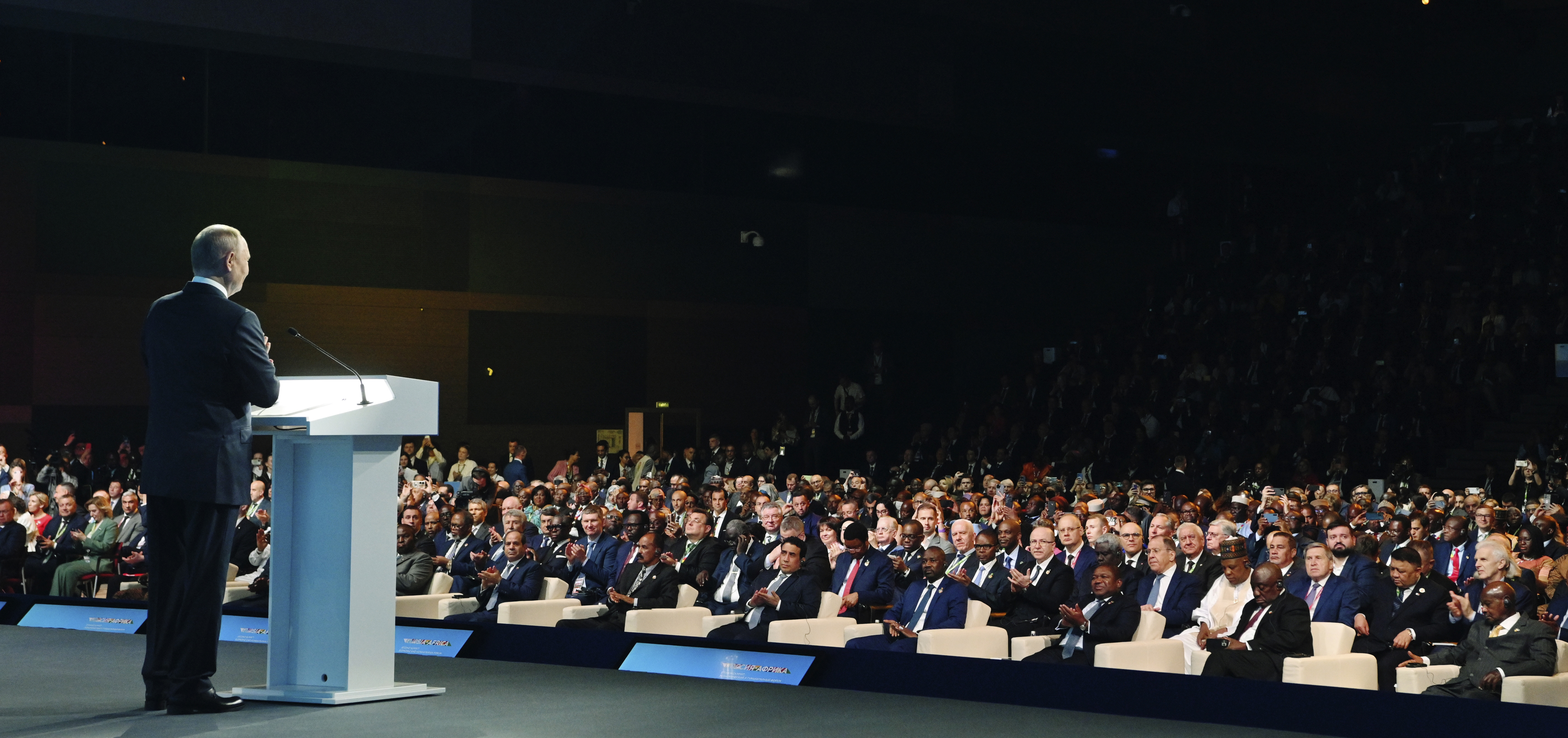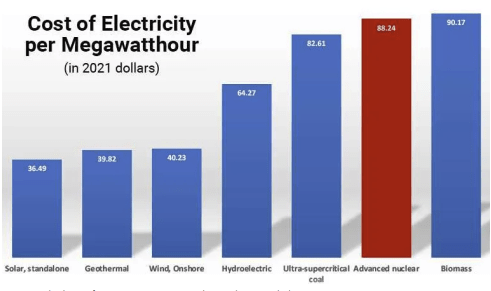BUSINESS REFLECTION
After the Bell: So, Russia, where is our nuclear plant?

With the Russia-Africa Summit kicking off in St Petersburg on Thursday, it’s worth asking a tangential question: whatever happened to the Russian attempt to sell nuclear power stations to African countries, SA included? Is it dead? Is it alive? Is it just slumbering?
The Russia-Africa Summit that began on Thursday is of course a disaster. The previous Russia-Africa Summit in 2019 was attended by 43 African leaders, this time only 17 arrived in St Petersburg. The turnout is so bad that the Kremlin has stooped to accusing the West, and in particular the US, of being deliberate “saboteurs” of the conference. Ja. That’s the reason.
But Russia has, not for the first time, shot itself in the foot by, um, not only invading a sovereign, neighbouring state, but by abandoning the agreement for the safe export of Ukrainian and Russian grain through Black Sea ports. Russian leader Vladimir Putin has promised to make up that shortfall, inadvertently acknowledging the faux pas.

Russian President Vladimir Putin greets African Union Chairman Azali Assoumani during the Russia-Africa Summit on 27 July in Saint Petersburg. (Photo: Contributor / Getty Images)
African leaders are extremely vulnerable to increases in food prices, which could potentially fuel urban protests, which, in turn, increase political pressure on the leaders. A senior Kenyan civil servant in the country’s foreign ministry went so far as to call it a “stab in the back”.
Nuclear leverage
Anyway, none of the official documentation mentioned nuclear power, but that doesn’t mean the Kremlin has given up its attempt to foist power plants on unsuspecting African nations. There was some discussion of nuclear power in the panel sessions, but I suspect the Russian effort is on ice for a bit.
Interestingly, the reason is not because of Western sanctions, since there are no sanctions on the Russian nuclear plant provider, Rosatom. The company slipped below the scythe because the Czech Republic, Bulgaria, Slovakia and Hungary all have Russian-built nuclear plants. They are all dependent on them for the majority of their electrical power and they are all dependent on the supply of enriched uranium made by Rosatom. There are 14 plants altogether, and in addition to these, two Finnish plants use Russian-enriched uranium, at least for now.
Russia accounts for just under half of the world’s uranium enrichment capacity, and collectively European countries and the US pay Russia around $1-billion a year for this fuel. The supply of natural uranium is much less dominated by Russia, but guess which country is one of the world’s largest producers? It’s Niger, where there just happened to be a coup on Wednesday. Some coup supporters waved Russian flags and chanted anti-French slogans outside the National Assembly as the coup was taking place. What an amazing coincidence.

Russian President Vladimir Putin delivers a speech during a plenary session of the Russia-Africa Summit in St Petersburg, Russia, on 27 July 2023. (Photo: Alexander Kazakov, Sputnik, Kremlin Pool Photo via AP)
Niger, Russia and another Russian ally, Kazakhstan, together produce about two-thirds of the world’s natural uranium. Canada, Australia, Uzbekistan and Namibia produce most of the rest.
There is no doubt in my mind that the Russians would still love to sell SA a nuclear plant — as we know, this has been one of the major planks of Russian diplomacy for decades. And following the Russian invasion of Ukraine, the utility of the policy is even plainer to see: Russia’s biggest supporter within the EU is Hungary, which was the country leading the charge to keep nuclear power off the EU sanctions list.
The logic, in case you missed it, works on the “short and curlies” principle, which goes like this: if you have them by the short and curlies, their hearts and minds will follow. It’s certainly true of Hungary’s leader, Viktor Orbán.
Renewable energy
The big problem for Russia and, as it happens, for France and many other European nations dependent on nuclear power, is that the cost of renewable energy has come down so fast, the arguments in favour of nuclear (which do exist), are much less powerful now. Nuclear power does have big advantages: it’s clean, reliable, “dispatchable” (not dependent on the sun shining or the wind blowing), uses less land, and typically has a longer lifespan.
But between 2009 and 2021, the costs for renewables like wind and solar have declined by 90%, while those for nuclear power have increased by 33%, according to the US Department of Energy’s 2022 Energy Outlook report. The levelised cost of new-generation solar and wind energy is now about a third of that of advanced nuclear.

(Source: Levelised costs of new generation resources in the annual energy outlook 2022, US Energy)
With those numbers in the background, buying a nuclear plant will have to be heavily influenced by diplomatic pressure. And that, presumably, is partly what the summit is all about. DM
















 Become an Insider
Become an Insider
” The logic, in case you missed it, works on the “short and curlies” principle, which goes like this: if you have them by the short and curlies, their hearts and minds will follow. It’s certainly true of Hungary’s leader, Viktor Orbán.
And what about the guy that promised the plants here ?
No news about CR visiting our sick ex Pres ?